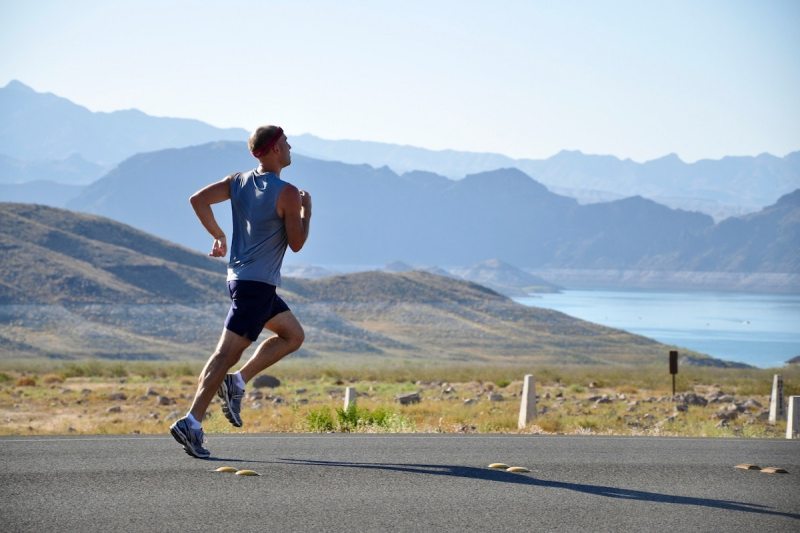
Exercising is more than just deciding you want to work out. There are multiple things when it comes to working out that you need to consider: What type of exercise you will do, what you will wear, how hard you will push your body, how long you should work out. The list could go on and on. Another important consideration with exercise is when you should eat in relation to your workout. The body obviously needs energy for any sort of physical activity, but trying to exercise on a full stomach can be painfully uncomfortable and lead to cramping, bloating, and difficulty moving quickly. Naturally, you may ask yourself, how long should you wait to workout after eating?
So, what is the ideal window of time you should wait after eating to exercise? Can you exercise right after eating? In this guide, we’ll discuss how long you should wait to exercise after eating and talk about the pros, cons, and best practices to help you have the energy you need to smash your workouts while sidestepping any digestive issues.
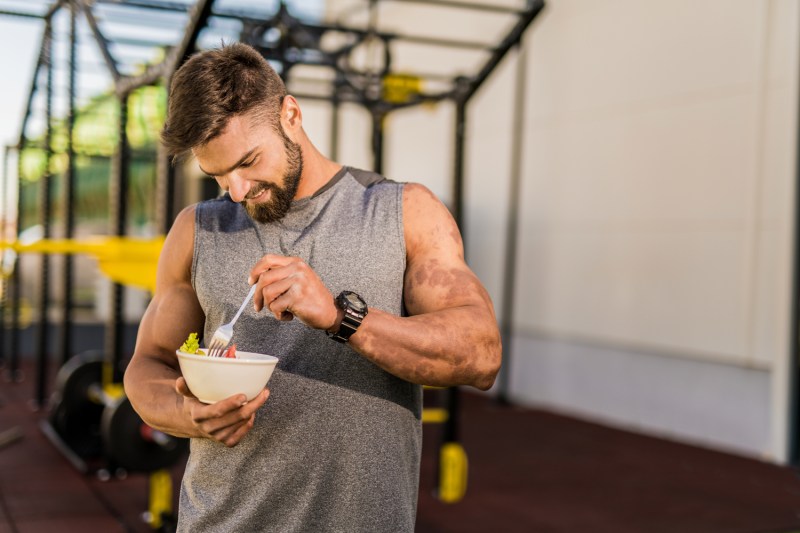
Pros of exercising after eating
One of the challenges of exercising on a completely empty stomach, such as first thing in the morning after waking up, is that your blood sugar levels are low and your muscle and liver glycogen stores get depleted to some degree overnight. This can leave you feeling sluggish and tired from your workout, particularly if you’re trying to do vigorous activity. Failing to fuel properly can compromise your performance.
In more serious cases, waiting too long after eating to start your workout can lead to feelings of dizziness, if not fainting, particularly if you have diabetes or other blood sugar regulation issues. Some people may also experience nausea and headaches if they try to work out with low blood sugar.
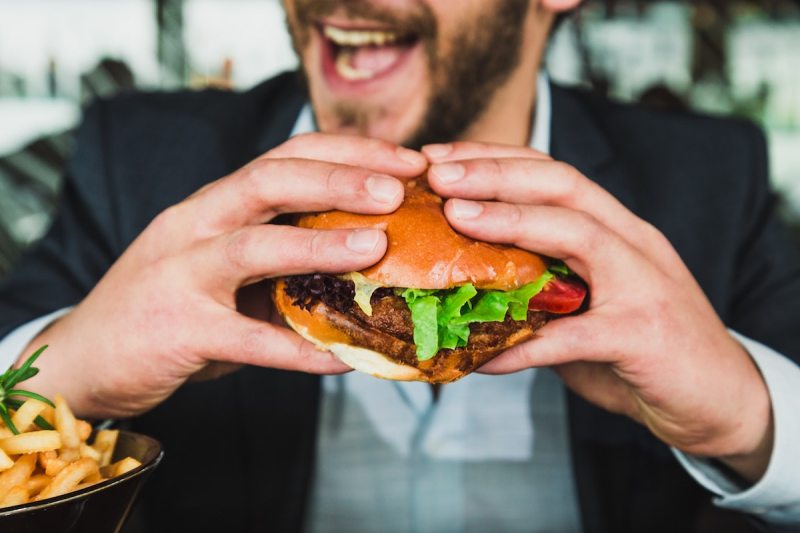
Cons of exercising after eating
As anyone who has tried to hit the gym to lift weights or head out for a run after eating knows, exercising right after eating can cause a world of stomach issues. From bloating, side stitches, and burping to gas and emergency run to the bathroom, a stomach full of food and vigorous physical activity don’t mix well.
After you eat, blood rushes to the stomach and digestive tract to begin the process of breaking down your food to absorb nutrients. However, when you exercise, blood is shunted from the digestive tract to the working muscles in order to supply them with the oxygen and nutrients they need to perform whatever physical activity you are taking on. Because of this, digestion nearly ceases, and whatever contents are in your stomach and GI tract basically hang around until your workout is over and blood flow resumes to your digestive organs. This is why you might feel like your stomach has a lead ball of food in it that is just sloshing around while you work out instead of being processed as usual. Therefore, in most cases, exercising immediately after eating is uncomfortable and inadvisable; you have to give your body time to digest what you eat before you start engaging in a vigorous workout.
Factors that affect how long you should wait after eating to exercise
There are quite a few things you need to consider when deciding how long you need to wait after eating before you decide to work out. Here are some key things:
1. Type and intensity of exercise you plan to do
The type of exercise and the intensity of your workout affect the ideal pre-workout fueling strategy. For example, if you’re going to be tackling a gentle form of exercise, such as yoga, walking, or easy swimming, you can typically get away with a more flexible eating schedule and volume before your workout. In other words, the easier your workout, the less impacted you’ll be either way in terms of what you do or don’t eat. If you are trying to exercise on an empty stomach, you will be more likely to get through the workout feeling okay than if you were trying to do an intense run or heavy leg workout. The lower the intensity of your workout, the greater the relative percentage of energy that comes from fat. Therefore, the status of your glycogen stores and carbohydrate intake is far less important than for vigorous exercises, in which the body relies much more heavily on metabolizing carbohydrates for energy.
On the other end of the spectrum, if you’re exercising at a low intensity and moving more slowly and gently, you can also get away with exercising after eating a larger meal or not waiting as long after eating to start your workout. Because you won’t be jostling your body as much and engaging your muscles as intensely, blood will still be routed to your digestive tract to start breaking down the contents in your stomach. Moreover, it’s really uncomfortable to try and run with a big meal sloshing in your stomach, but if you’re just taking a gentle walk, there’s little in the way of painful bouncing or sloshing in your digestive tract.
2. How long your workout will be
The longer you plan to work out, the more fuel you’ll need, so you’ll want to ensure you have a nutritious meal or snack within a reasonable timeframe to prevent bonking, a grumbling stomach, and lethargy.
3. How long it’s been since you’ve eaten
You also have to look at the timing of your workout and pre-workout meal or snack in the greater context of everything else you’ve eaten that day. For example, if you exercise first thing in the morning, you haven’t eaten anything since dinner or a bedtime snack. Therefore, your snack before your workout will be the only thing you have had in hours.
In contrast, if you exercise after work, you’ve presumably eaten breakfast and lunch, if not additional snacks, so you have more nutrition on board in a sense. You can thus typically get away with a smaller pre-workout snack or just lunch and still have ample energy for your workout.
4. What you ate
The specific foods you eat also affect how long you should wait after eating to exercise. In terms of what you eat, foods that contain fiber and fat, and to some degree protein, take longer to digest and move onward from the stomach to the intestines. Therefore, if you’re going to be exercising right after eating, stick with simple carbohydrates like sports drinks, fruit, rice cakes, or crackers. Studies also show that the caloric content of your pre-workout fuel choice affects how long it takes that food to be processed through the stomach. The more calories you eat, the longer it will take because the stomach only empties at a rate of about 1-4 kcal/min.
5. How much you ate
Finally, the more you eat from a volume standpoint, the longer you will want to wait to exercise because it takes your stomach longer to fully empty a larger volume of food. Plus, it can be really uncomfortable to work out on a stomach filled with bulky food like Brussels sprouts and mashed potatoes.
6. Your digestive system
Some people are blessed with “iron stomachs“ in the sense that they can exercise on a rather full stomach with no problems. Other people have sensitive digestive tracts, and or slower gastric emptying, and need to wait longer to exercise after eating. you will have to experiment with what works well for you if you are new to working out.
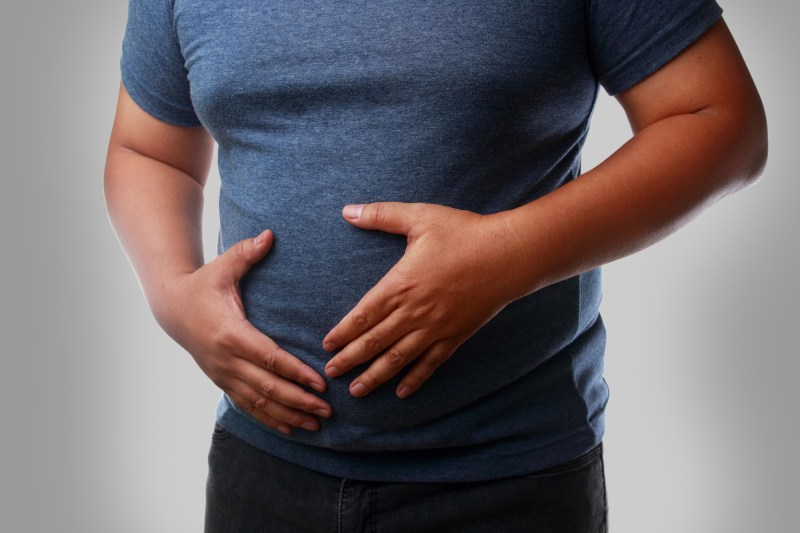
What happens if I eat right before I exercise?
Eating right before a workout can lead to various gastrointestinal problems, again, this is going to be based on an individual basis, and may result in the following potential side effects:
- Nausea
- Acid reflux
- Heartburn
- Bloating
- Diarrhea
- Vomiting
- Stomach cramping
Additionally, consuming a meal before exercise might cause low energy or sluggishness, affecting your workout performance. The phenomenon known as post-meal fatigue or “food coma” is still being studied, with theories suggesting redirected blood flow, hormone release, or blood sugar fluctuations as possible causes. High intake of refined carbohydrates or sugary foods can contribute to sharp fluctuations in blood sugar levels, resulting in an energy dip.
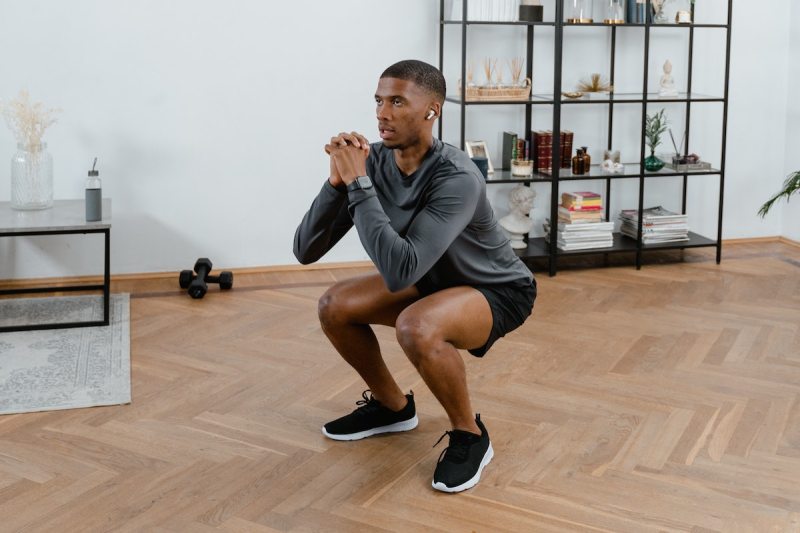
General guidelines for exercising after eating
Overall, exercise after eating involves a delicate interplay of trying to find the balance of having enough fuel and nutrition to feel strong and energized for your workout without feeling weighed down with food in your stomach. While the length of time you should wait after eating is clearly somewhat individualized, here are some guidelines for best practices with exercising after eating:
For vigorous exercise (running, HIIT, strength training, cycling, fast swimming, intense cardio, etc.)
- Wait 3-4 hours after a large meal to exercise
- Wait 2-3 hours after a small meal to exercise
- Wait 1-2 hours after a snack to exercise
- Wait 30 minutes after a quick bite or sports beverage to exercise
For low-intensity exercise (yoga, walking, hiking, Pilates, gentle swimming, and low-intensity cardio)
- Wait 2-3 hours after a large meal to exercise
- Wait 1-2 hours after a small meal to exercise
- Wait 30-60 minutes after a snack to exercise
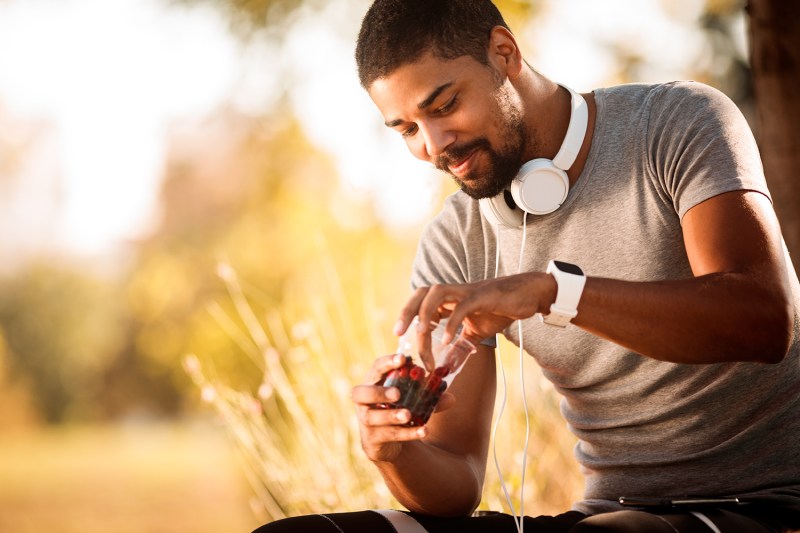
Minimal rest for maximal gains
Consuming food too close to a workout can lead to gastrointestinal problems, potentially impacting your performance. Research indicates that waiting 1 to 2 hours after a small meal or 30 to 60 minutes after a snack may help prevent stomach issues. However, factors such as exercise intensity and meal composition should be considered when determining the optimal time to exercise after eating.
Editors' Recommendations
- These beach body workout tips from a pro will help you get in shirtless shape fast
- How to prevent shin splints: 5 simple tips for a better workout
- Exercise snacks are the quick, effective workouts everyone can (and should) do
- The best fitness gear to maximize your post-workout recovery
- 5 effective cable workouts to help you get those boulder shoulders

